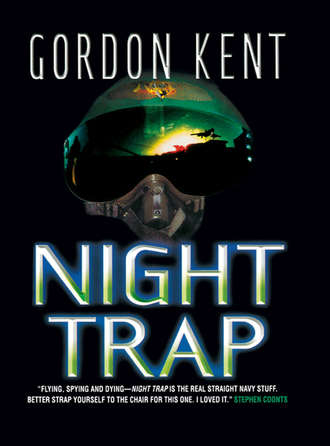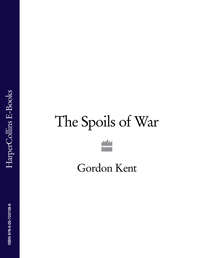
Полная версия
Night Trap
“Jeez, I thought I was loveable.”
“See? Always destructive digs. Now, my guess is you were never on a sports team. Am I right?”
“Actually, I was.”
Narc’s eyes narrowed. “What team?”
“Wrestling.”
“Wrestling! You wrestled?” Narc looked shocked. “Were you any good?”
Had he been any good? Mostly, he’d been a skinny kid too small for his age who’d spent his adolescence doing the things he most feared because he thought he was a coward—going in the winter without a coat, swimming across a lake at night, wrestling. He’d hated it, and so it had become even more important to do it. Had he been any good? “Nah,” he said.
For three years, he had learned all the holds, the takedowns and the escapes; he got so good at them that the coach had him teaching other wrestlers. But he was physically weak, and he hardly ever won a match. Then, in the summer after his junior year, he put on a spurt of growth and grew right into the weight class of the team’s best wrestler, the state runner-up. He never got into a match again, was a training partner for the good one. At the season’s end, the coach gave him a letter anyway, something he had desperately wanted, and that night he took it down to the Iowa River and dropped it in, because it was part of his code then that real rewards didn’t come for trying hard; they came for succeeding.
“I don’t see you wrestling,” Narc said.
Alan smiled at him. “Ever try it?”
“Jesus, no. The dumbest guys I ever knew were wrestlers.” Clearly, Alan had confused him. “Do it in college?”
Alan shook his head, laughing now. “I made sure I picked a college that didn’t have a wrestling team.” In fact, he’d picked a college that had no teams at all, only intramural sports. He had conducted his life like that in those days, with a rigid adolescent morality, rules, abrupt changes of direction. Ironically, he had put on bulk and muscle his first year in college and would then have been the wrestler he had wanted to be. He hadn’t realized that until, his second week in the squadron, he had been packed off to be the guinea pig for a new self-defense course put on by the Marines at Quantico. He had loved it, learned a lot about street-fighting, and had told the skipper it was great. Later, other officers, coming back limping and bruised, had accused him of being a practical joker.
“I played soccer and baseball,” Narc said, his tone indicating that these were real sports and that they gave him an authority Alan lacked. Narc went on to explain his theory of human interaction based on team experience. He ended by saying, “No offense, Craik, but the way I read it, you’re a loner, do you get my meaning?”
“You mean I’m a loner.”
“That’s right.”
“Wrestlers get like that. Four years in somebody else’s armpit, you want a little space.”
“You need to learn to interact. I bet you weren’t in a fraternity.”
“You’re right.”
“See? That’s where you really learn in college. Human skills. I paid a lot of attention to that side of it. You ever notice how I handle Rafe, for example?”
Alan hadn’t, but he said, “Mmmm,” in an appreciative way.
“That’s my point. You understand what I’m saying? You’re in his face all the time—like that shit with the BG and the radar. You made it sound like he had to do it because it was some big moral thing. I’d have made it a game, a team thing. See, it’s really a kind of management thing. Management skills. That’s what sports are all about. I expect to be an astronaut, right? That’s a team effort all the way. I’ll be way ahead in that department.”
“Afraid I’m a little late for a sports team.”
“Never too late to improve yourself. That’s one of my beliefs. I have a book I’d like you to read. Will you read it?”
Alan was surprised that Narc read any books at all. He said that of course he’d read it.
“It’ll change your life.”
Alan wondered if he wanted his life changed. That brought him somehow back to his father, then to a question as to whether all the changes he had made had simply been tacking back and forth across the unchangeable fact of being Mick Craik’s kid.
0420 Zulu. Langley, Virginia.
A bored clerk watched the low-level traffic feed in, now and then routing a message to file or analysis. Most of it, she knew, ended up somewhere in the attic of a mainframe computer, bytes on a chip that would be dust-covered from neglect if dust were allowed there. She yawned. Her eyes stung with fatigue. She sipped cold coffee.
Somebody had got herself murdered in Amsterdam. Big deal, she thought, you should live in DC. Hey, the somebody was a possible agent. She looked at the clock. Oh, Christ, she thought, four hours to go yet! A woman in Amsterdam. Yuck. Oh, gross. It made her slightly sick—a pregnant woman killed with a knife. Who does these things? “Lover of assistant naval attaché, Turkish mission.” That was it? One murder, one pair of hotpants. Big deal. She routed it toward the back burner.
16–19 March 1990. Mid-Atlantic.
Peretz was a born teacher. Alan learned more from him in four days, he thought, than he had in months of Navy schools. Peretz was crippled by a cynical wit, a submerged though very real arrogance. Yet he loved intelligence.
Once, in those four days, Alan said to him, “HUMINT’s a dying craft.” He had learned that in intelligence school: HUMINT—human intelligence, “spies,” was history; the future belonged to technology.
“Should I write that down?” Peretz had said. He had made this joke several times, pretending that Alan had said something so important it should be kept for posterity. “Jeez, I wish I had pen and paper. Maybe I can just commit it to memory. Now, how did it go? ‘HUMINT’s a dying craft.’ Boy, that’s really beautifully put.”
“Okay, you don’t agree.”
“Not me, sonny. It’s folks like the KGB—sorry, the SVRR. You think they have seven hundred thousand employees because they believe HUMINT’s a dead issue?”
“And look where they are. They lost. It’s over.”
“Communism lost, so HUMINT’s a dead issue. I think I missed a logical connection there someplace. Does your mind always work that way?”
Alan repeated to him some of the wisdom that he had learned in intelligence school, and Peretz laughed out loud at him. “Oh, to be young again!” he said. “Look, Al—” He had taken to calling him “Al,” a name he had hardly heard since high school. “—satellites are wonderful, spy planes are superb, NSA is the greatest organization of its kind in the world. But without the guy on the spot, they’re just fodder for the bean-counters. You need both, SIGINT and HUMINT. Americans love technology; for one thing, it’s expensive, and we trust things that cost a lot. Anything as cheap as a spy is immediately suspect to us. But you can really get hurt by old-fashioned human intelligence. How do you think the Soviets got the atomic bomb?”
“Forgive me, but I think your example says it all. That was more than forty years ago.” Alan chuckled; he knew Peretz well enough by then to be able to say, “Come on—spies?”
“Al, right now you’re in love with your computer and your radar. That’s fine. But I keep trying to tell you, you’re an intelligence officer. Be intelligent.” Peretz saw his skepticism. He sighed. “My greatest fear is, somebody’s going to plant an agent on me and I’ll be the unwitting means for some two-bit country to learn something that will hurt us—South Africa. France. Israel. One of the Arab states. You think I’m living in the past. Wrong end of the stick, chum: I’m living in the future. You wait until low-tech countries start going after our shit. You’ll see how important HUMINT is, in spades.” He shrugged. “Okay, so you need to grow up some. Come on, I’ll buy you a slider while you’re aging.”
They worked late together one day, running the new template through its paces. Alan knew he was good at it, had even proposed an improvement that Peretz fastened on to. Now, pleased with themselves, at ease with each other, they sipped cold coffee in the intelligence spaces, feet up.
“You know this is my last tour,” Peretz said.
Alan tried to think of a politic thing to say.
“Your dad told you I’m out, didn’t he?”
“Yes, sir.”
Peretz began to play with his fingers. “I could give you a lot of reasons why. They’re on my fitreps, right? But, between you and me—let me tell you this, because I see in you another … guy who might have to make the same choices. I wouldn’t make the sacriflce. You understand what I mean?” He made a face, sighed. “I wouldn’t make the sacrifice. Of my doubts, of my jokes, of my family. Of myself. What I mean is, if you stay in—there’s a cost.” He shrugged. “I didn’t want to pay it.” He looked at Alan. “You sure you want to pay it?”
He wasn’t sure at all. He didn’t yet know Peretz well enough to say what he really feared: I’m only here until I prove something to my dad.
The last morning, Alan went to say goodbye. They were anchored in the Bay of Naples. Alan was excited, mostly about the imminent meeting with his girl, an imminence of sex that was so powerful he was sure he smelled of it. Sailors and women, oh boy—it was all true!
“I’m on my way, sir.”
“Hey, it’s been good. Your dad’s a lucky guy. Listen—” He held Alan’s arm. “Stay in touch. I mean that.”
“I will.”
And he would. His father wouldn’t approve, but he would stay in touch with Peretz.
Alan ran his father down in the squadron ready room. They shook hands, neither moving to an embrace because other men were nearby. The distance that had opened between them had not been closed, and Alan found himself dodging the suggestion that they get together in Naples.
He would think later of the time thrown away, time they might have had together, valuable only when it was too late.
4
20 March 1990. 0648 Zulu. Naples.
It was a day of the kind they make tourist brochures about, the bay deep blue and sparkling with the sun; toward Capri, the water looked greener, and the boats heading for the island trailed crisp, white wakes. In the other direction, Vesuvius seemed unthreatening behind a thick rim of beachfront development.
Petty Officer First Class Sheldon Bonner was not impressed. He liked Vesuvius well enough—enjoyed checking it out each time a sea tour brought him here—but “See Naples and Die” sounded stupid to him. The volcano looked a little dimmer today, he thought—more smog, more people down along the bay, more cruddy towns. But what he liked about Vesuvius was its lurking menace, and one day, he was sure, it would crack open again and pour ash and lava down on all the crud, and the bay would be cleansed and the air would be clear again. That would be worth seeing.
“Hey, Boner.”
A body joined him in the line. He didn’t even look back to see who it was. He grunted.
“Hey, Boner, gonna get some?”
“What else do you think we visit this shithole for?”
“Great pussy here, huh, Boner?”
“So-so.”
“You’re a fucking cynic, you know that, Boner? Your old lady know you got such high standards in pussy?”
Bonner carried on these conversations without thinking. Most talk, he had found, was done on autopilot. Men lived their real lives someplace else, hustling each other about what great sex they had, or what bad sex they had, how drunk they were last night, how they were mistreated, misunderstood, ripped off by the system; inside, they were thinking about other things entirely. He, for example, was thinking about money.
The line lurched forward and a speaker boomed out, “Boat away.” He gave his name, started down the ladder. Below, a boat was just moving away from the ship, the water opening between them a deeper, blackening blue. He descended into shade and felt cold.
Another boat nudged up and men began to file aboard. Bonner followed, clutching his toilet kit.
“You been this place before?” the E2 next to him said. Bonner remembered him from the hangar deck, a kid just out of high school.
“Lots.”
“It true they got a guy with a humongous prick at Pompeii?”
“Depends what your standard of comparison is.”
The kid laughed and turned red. He started to tell Bonner how he and his buddies were going to rent a car and drive to Pompeii and see the porn. Bonner tuned out. It was no good telling them that the train was a lot cheaper and easier. It was no good telling them the porn was stupid. It was no good telling them anything. They were young. Let them get ripped off by the Italian car rental agency, screwed by every gas station and trattoria; let them pay some ancient Guinea a hundred times what he was worth to be told a lot of bullshit about Pompeii. They were young and stupid—and in three to five years, they’d be out of the Navy or they’d be on their way to passing him by. They’d be headed for chief, and he’d still be a POI.
Sheldon Bonner, POl-For-Life. He thought of it as a title. He’d been busted twice, come back both times to POI, knew now he would never rise beyond it. The hotshots got their promotions on the backs of people like him, who made them look good. Were they grateful? Not a chance. They got the promotion, changed the uniform, hung out with their own kind and laughed at him behind his back. He knew. He’d had buddies who’d done that.
“Hey, you see that guy?” The kid nudged him. He was jerking his head toward a young man just coming aboard. Officer, Bonner thought, even in the civilian clothes. Behind him was a huge black man Bonner recognized as a super chief.
“What about him?”
“That’s my skipper’s son. Isn’t that amazing?”
He looked to be a perfectly normal, snot-nosed j.g., from all that Bonner could see. “What’s fucking amazing?”
“He’s the skipper’s son.”
“I’m not amazed.”
“He came in on that S-3 that took the net four nights ago. Maybe you didn’t hear.” He sounded suddenly apologetic, as if he had just realized that what was wonderful to his novice eyes bored the shit out of an old man like Bonner.
Bonner grunted. He didn’t much care about officers. They had almost nothing to do with him. He resented them, but this was simply a fact of life; everybody who wasn’t an officer resented them. But it was a given, part of their world, like the law of gravity. He watched as the super chief seemed to surround the young officer, protecting him. Old Dad had seen to that.
“Nice to have somebody to wipe your ass for you,” he said. The boy snickered. It wasn’t officers Bonner really resented, it was hotshot enlisted like this super chief, clearly younger than Bonner, already making better money. This one, he supposed, got there by being black.
“We’re the biggest minority in the fucking world,” Bonner said.
“Who?”
The boat separated itself from the carrier. The breeze freshened as soon as they swung away. Bonner shivered, then put his face up as they swung into sunlight. “White guys,” he muttered.
Did he really believe that? Bonner was never quite sure what he believed. Other people seemed to have fierce, clear beliefs, but he was aware only of large areas of dislike or grievance or distrust. The White Power guys, for example; they really believed all that, but when he talked to them, they sounded bananas. He knew guys in the Klan; they were out of it, too, he thought. No, what he hated about the Navy, about the world, was something so huge, so unexplainable, that you couldn’t make a cause of it. It was, finally, himself alone, and then this huge Other. That was the enemy. All that.
Not that he didn’t think that black guys got ahead these days because they were black. They did. Also women. But those were just parts of it, just little bits you could see of something huge and hidden.
What he was sure of, what he really knew, was that nobody ever got anything without being crooked somewhere. Find a rich guy, he’d show you a crook. The difference between people with money and people without money was that the ones with hadn’t got caught.
“Hey, man, is this Naples really as bad as they say?” the kid said. He looked nervous. He was like a young chicken, waiting to be plucked. He touched something in Bonner, maybe his attachment to his son.
Bonner began to talk to the kid about Naples. He gave him good advice, even though he knew it was wasted.
“Use a fucking condom. The whores here have AIDS for breakfast.”
Alan Craik let Senior Chief Petty Officer Gibbs shepherd him to the door of the Hilton. Gibbs apparently considered it his duty to keep watch over the skipper’s kid; this could have annoyed the hell out of Alan, but he decided not to let it.
“I think I can get through the front door by myself, Chief.”
Gibbs grinned. He was an enormous man, almost too big for the Navy’s specs. “Naples’s a dangerous place, Mr Craik.”
“Yeah, but the Hilton isn’t. Thanks for babysitting me.”
Gibbs grinned. Alan found the grin patronizing.
“Chief, I used to live in this town. Granted I was only nine. Kids learn a lot. Capisce?” Gibbs looked skeptical. “My dad was assigned to NATO here. I used to live—right up there.” He pointed up toward the Vomero, hardly visible now between the high-rises. He tried out the Italian he had been practicing in secret, the dimly remembered language of childhood. “Ero un’ piccolo scugnizz’ americano; ho vista tutto, tutto, d’accordo?” He made it a joke, laughed, although what he really remembered was that this was where his parents’ marriage had fallen apart. Not because of Naples, but because of the Navy.
“Okay, okay, Lieutenant. Take care, you hear?”
The big man ambled to the curb, then darted into the traffic and was across the street and gone.
Alan went through the doors and into the lobby that seemed familiar because it was international, therefore almost American, in the style of the American century. The woman at the concierge’s desk was stunning, bringing back all of Naples to him in an instant: not a girl, a woman, ample, a Sophia Loren face. Like the maid when he was nine, his friend, who had taught him Italian because she spoke no English. Teresa. Married to a little shrimp of a man who abused her.
“Per favore, signora.”
“Yes, sir?” She wasn’t going to let him speak Italian, he saw.
“A guest named Hoyt? Initial K?” Had Kim been able to get here?
“Twelve-thirty-one, sir. The telephone is right through there.”
His knees felt weak. He hadn’t seen her for six weeks. She had been a new experience for him before he sailed, a poor little rich girl with an appetite. Now, heading for the phones, he was thinking that maybe those nine days were a fiction; maybe he remembered them wrong. And then there was what his father had said about Kim—implying that she was stupid, a bimbo, an easy lay.
But she was here. He had sent a message, and she had jumped on a plane and come.
“Kim? Alan.”
“Oh, God! Come on up!” She giggled. “I’ve been shopping.”
When she opened her door, he saw what she’d been shopping for. They hardly managed to get the door closed before they were at each other.
PO1 Bonner picked his way around the pimps, dodged the plain-clothes cops, and gestured away the child pickpockets who were waiting for the carrier’s crew. He changed twenty dollars at the booth by the dock, causing a black-market money-changer (probably a cop) to assume a look of deep grievance; then he walked quickly up away from the water and headed into the first tobacco store.
“Camels. And a carty di telyphono.”
“Bene.” Bonner dropped fifteen thousand lire and the man counted the correct change. Bonner believed that every Italian would cheat him if given the chance, but he never gave them that chance, and he believed they knew it. It was part of his idea of himself that he had to project an image of toughness and knowingness, or the world would cheat him.
“Gratzy,” he said. The man only nodded.
Every minor crook and sex merchant in southern Italy would be there to greet a major American ship, he believed. The streets of Naples teemed with criminals, anyway, he was sure; today, their numbers would be multiplied—dwarves pretending to be children, mothers who had made cripples of their children to start them on a life of begging, men got up as nuns, transvestites there to lure naive kids into alleys. Bonner was walking through a city of tricksters. It was like this wherever he went; as a result, he never enjoyed himself.
He walked through a narrow street of shops and came out into the great piazza in front of the old Bourbon palace, then along the front of the palace. A few other sailors were already sightseeing there; these were the nerds, the serious ones, what Mattingly called the jerkoffs; one of them even had a guidebook and was reading to his buddy. Bonner walked along behind them. He passed the statues of the Bourbon kings, elevated above him in niches, below each one a stone rectangle and a kind of curb at the bottom. He passed the third of the four kings, and no one watching him could have said for sure whether he looked down and saw the chalked circle on the small curbstone, but when he had walked the length of the palace he turned, without changing his pace, and angled across the piazza, along in front of the curving porticoes that are a little like those of St Peter’s in Rome, and headed into the Via Chiaia. And nobody watching him could have known that seeing the chalked circle had him seething with resentment, for he seemed the same impassive man.
At the far end of the Via Chiaia is a vast old movie theater that was once a bomb shelter, cut into the soft tufa of the hillside. Inside, it is always cool and damp, and the place smells of mildew and cats. Yet it has the virtue of being open most of the day and night, so that men like Bonner can do their peculiar business there. (Other men and women do other, also peculiar, business there.)
Bonner bought a ticket and climbed to the second level. He passed the first men’s room he came to and went on much farther than seemed sensible in a movie patron, finally stopping at a smaller, almost hidden toilet far around toward the screen. There, he pissed, then lingered by a basin, combing his flat hair, his bag guarded between his feet, until a fat man in a dirty T-shirt went out. The only other occupant was in a stall, stinking the place worse than the mildew and the cats. Bonner bent quickly and felt under the second basin from the wall and removed something that he found at the back, slipped it into his pocket and went out. He did not stay to see the movie.
He checked into a hotel a block back from the tourist streets, a little place that was as plain and clean as a newly cut board. He had got it out of a tourist guide that promised to save you a hundred dollars a day. Bonner had lots of such guides; he made a little money on the ship renting them out—Naples, Monaco, Bahrain; it was well known that Bonner could tell you where to stay and where to eat for a minimum of ripoff.
He’d stayed here two other times, but they didn’t remember him. Why should they? he asked himself. Better that they didn’t.
The room was only big enough for the bed and a TV; the bathroom was no bigger than a closet, everything in it molded out of plastic, as if they’d just dropped the unit into place. Shower, no tub. No free shampoo or lotion or any of that shit. But clean.
Only when he was in the room with the door locked did he take out what he had collected in the men’s room. He unfolded a sheet of paper. His lips moved a little as he read the instructions written there. His anger showed in his face now. He read it again, then tore it into bits and slammed into the tiny bathroom and flung the pieces into the toilet.






